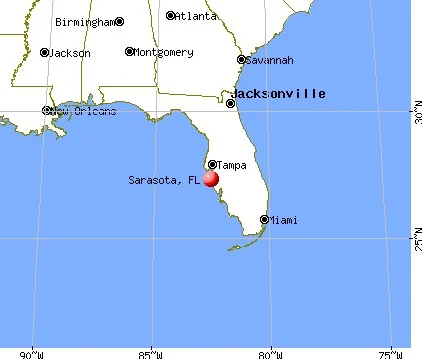Currently, Nevis imports approximately 4.2 million gallons of diesel fuel annually, at a cost of $12 million, and the Caribbean region spends over $4 billion yearly (2009) on producing power. Clearly, a new source of energy is not a luxury or a wish – it is a necessity! The introduction of geothermal energy will cut costs, considerably.
I recently sat down with the Honorable Mark Brantley, Deputy Premier and Minister of Tourism for Nevis, and his geothermal guru, Bruce Cutright, CEO of Thermal Energy Partners and Principal, Nevis Renewable Energy, Inc. (NREI), to review the new geothermal thrust that will turn Nevis into the greenest place on Earth.
Geo – What?
According to Kermit the Frog, “It’s not easy being green.” If you were to ask Brantley if cutting the cord to fossil fuel and replacing it with geothermal power was a challenging decision process, he would probably agree. It has taken Brantley a considerable amount of time, coaxing and money to get the government and his constituency to buy-in to geothermal power.
Geothermal energy is the intense heat deep within the earth (i.e., geysers, hot springs and volcanoes). It is more efficient than diesel-fuel power generation and it doesn’t emit greenhouse gases into the air. The earth continuously generates roughly 44 terawatts, or trillions of watts, of heat — three times the global population’s current energy use.
Brantley conceived the idea of going geothermal in early 2000 but a combustible mix of politics and global economics made the project less than viable. Finally, in 2013 a request for proposals for geothermal development was approved for distribution and, with the assistance of Deloitte Consulting and funded through the US Department of State’s Power Sector Program – the project was on a positive path.
It is important to note that Nevis Electric Company Limited (NEVLC) and Nevis Renewable Energy International Inc (NREI) have focused on transparency in the tendering and procurement decision process. NREI is a subsidiary of Texas-based Thermal Energy Partners, LLC and has pledged to hire, train and employ Nevisians in site development, planning, construction and operations – whenever possible. Thermal Energy Partners is a geothermal energy company that provides resilient, renewable and base-load power to utilities, industrial and critical infrastructure.
Politics vs. Economics
Leaving petroleum behind in favor of geothermal energy is not an easy sell in a region that clings doggedly to the past. Although the Caribbean countries have an abundance of sun, wind, rain and ocean tides, experimentation and utilization of ecologically friendly renewable forms of power have been very small and sporadic. The reasons for clinging tenaciously to fossil fuel are quickly listed when discussed: “Wind, sun, tides?” “Unreliable!”
While the best choice is geothermal, not all countries in the region have the geography to tap this energy source or funding options to move projects from wishes and dreams to reality. In addition, it is frequently difficult to effectively communicate the economic, social and environmental benefits of harnessing renewable energy in light of the high start-up costs, interests vested in fossil fuel programs and potential loss and/or change in employment skill-sets.
Geothermal Works for Nevis
Seven volcanic centers as well as active hot springs and large geothermal reservoirs have been identified on Nevis. In addition to geography, it is estimated that geothermal projects will open a $1 billion industry thanks to the opportunity to export electricity to neighboring St. Kitts and as distant a locale as Puerto Rico.
However, there are always two sides (at least) to any project:
• Pro Geothermal Energy
1. Energy is considered environmentally friendly and limits pollution
2. Geothermal reservoirs are naturally replenished and therefore renewable
3. Excellent for meeting base load energy demand (consistent – as opposed to other renewables such as wind and solar)
4. Great for heating and cooling – even small households and businesses will benefit
5. Harnessing geothermal energy does not involve any fuels – which translates into less cost fluctuations and stable electricity prices
6. Small footprint on land (can be built partially underground)
7. Recent technological advancements (enhanced geothermal systems) have made more resources exploitable and lowered costs
8. Electricity can be converted to heat without losses and reach higher temperatures than fossil fuels
9. Electrification with renewable energy is much more efficient and therefore leads to a significant reduction in primary energy requirements as most renewables don’t have a steam cycle with high losses (fossil power plants usually have losses of 40 to 65%)
10. Advances Nevis’ commitments under the United Nations Framework Convention on Climate Change
11. Will make Nevis less vulnerable to volatile oil prices
12. May lead to the first inter-island electrical interconnection in the Caribbean
• Con Geothermal Energy
1. Geothermal power plants have large upfront costs as well as geothermal heating/cooling systems
2. Very locale specific
3. Sustainable (renewable) if the reservoirs are property managed
On the Mark
In order to transition from fossil fuel to geothermal energy the first phase of the project will supply 9MW of power (that is expandable) to meet the immediate needs of Nevis as well as the capacity to export 40-50 MW of additional energy to other islands within a 50+/- mile range. The target date for the switch is late 2017; by 2018 it is anticipated that Nevis will be the greenest island – anywhere.
The estimated cost for this project is $65 million and will be developed using air-cooled geothermal technology that does not use water. Funding sources include the Caribbean Development Bank (CDB) in cooperation with the InterAmerican Development Bank and the Japanese Aid Agency. The CDB has the resources to support the project from the exploration phase, provide technical assistance to design the project and to build the power plant and related facilities needed to move from production to the delivery of electricity to customers.
Optimistic
The US Department of State is optimistic and supportive of the Nevis geothermal energy project and, “… through its Caribbean Energy Security Initiative, aims to accelerate the diversification of Caribbean Energy systems through support for improved governance, increased access to finance, and enhanced donor coordination.” m.state.gov/md250002.htma
Brantley is optimistic and envisions Nevis with electric cars and public transportation as well as geothermal for housing, hotels, schools and private and public buildings.
It is very likely that the citizens of Nevis are looking forward to the initiation of the project – because it will mean a smaller bite or their incomes to be designated for business and families.
The United Nations’ Secretary-General Ban Ki-moon has determined that renewable energy has the ability to lift the poorest nations to new levels of prosperity. He has also determined that, “What we need most is strong political leadership to drive this clean energy revolution forward that the speed and scale necessary. We need to ensure that the right policy incentives and policies are in place to let the market do what it does best: innovate down the cost curve, and satisfy demand.”
It appears that Nevis is at the right place, at the right time, with the right product and being led by the right person. With a successful geothermal project Nevis will be leading the march toward a fossil-free global initiative.
This copyright article may not be reproduced without written permission from the author. elinor@tourismexecutives.com





